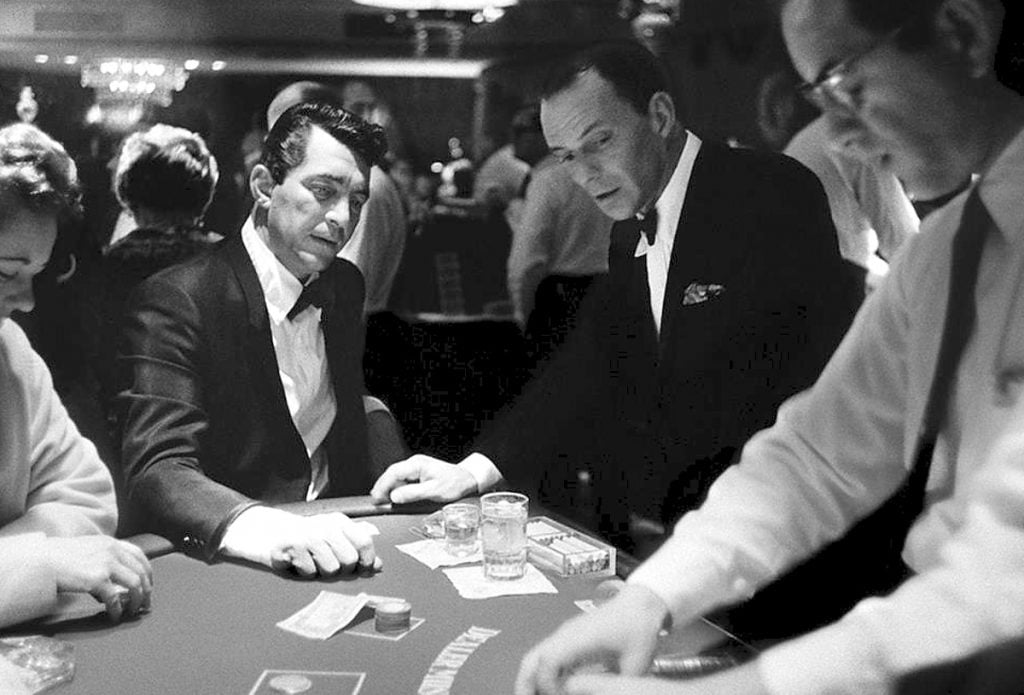VEGAS MYTHS BUSTED: Strip Casinos Earn Most of Their Revenue from Gambling

Posted on: October 21, 2022, 08:00h.
Last updated on: October 21, 2022, 09:28h.
The Las Vegas Strip has been the heart of gambling in the US for decades. But gambling is no longer the heart of the Las Vegas Strip. Over the last 30 years, casino profits have slowly shifted to non-gambling sources.

From the 1950s through the early ’90s, about 75% of an average casino’s revenue was earned on the casino floor. That’s why so many guests used to be comped for their rooms, drinks, meals, and shows – if they played. That’s what the casino “special guest card,” invented by the Dunes in the ’60s, was designed to track. Initially not computerized, the card number was recorded by the cashier at every buy-in. Enough of them translated into comps.
Today, the Strip’s revenue stream has flipped, with non-gambling sources accounting for that same 75%. According to the most recent quarterly earnings reports from its three biggest resort companies, MGM Resorts Las Vegas generated only 23.4% of its $2.037 billion in revenue from gambling. Caesars Las Vegas only earned 27.6% of its $1.142 billion in revenue, and Wynn Las Vegas only 24.1% of its $561 million in revenue from gaming operations.
Which is why your room is no longer free unless you do some seriously high rolling.
A Wynn Win
When Frank Sinatra made his Las Vegas debut at the Desert Inn in 1951, he told the crowd “For six bucks, you got a filet mignon dinner and me.”
Steve Wynn – who in the ’70s bought, beautified, and built out downtown’s Golden Nugget – saw opportunity in Vegas’ renowned tackiness. Instead of being about cheap buffets and shows, he decided it could be more like Monte Carlo. In 1989, he opened The Mirage, which offered its guests the best of everything. Dining at his Kokomo’s restaurant, they ate world-class steak and seafood while surrounded by banana trees and waterfalls in The Mirage’s indoor rainforest.
“Wynn had said a few years before that Las Vegas didn’t need another casino, but it sure needed an attraction,” said Michael Green, professor of history at UNLV. “By that time, more states and areas had legal gambling in some form – tribal and riverboat casinos loomed, and Atlantic City was siphoning off business. If you wanted to gamble, you didn’t need to go to Las Vegas, and soon you would have even more options. So, Las Vegas had to compete.”
Entertainment Followed Suit
Because of The Mirage’s success, every resort upped its dining game. Wolfgang Puck opened his first restaurant outside California, Spago, in Caesars Palace’s Forum Shops in 1992. More celebrity chefs followed, proving that dining was doable as a profit center. Via extension, Wynn realized, so was entertainment. A year after opening The Mirage, he installed Siegfried & Roy in their own $40 million theater and charged more than $100 a ticket to see them.
That began the sea change in entertainment,” Green said. “Now there would be normal or regular costs – enough to show a profit – to see a show, and it would have additional bells and whistles. Then came large arenas that meant performers were less likely to pop in for a week in the showroom, as Elvis did at The International or as Liberace did to open the Riviera in 1955. Costs and expectations changed.”
The transfer of power from occasionally mafia-backed millionaire casino owners to shareholder-beholden corporate executives also encouraged “four-walling.” Instead of paying to stage their shows, casinos made independent producers pay them to rent their showrooms. This brought in essentially what Vegas remains known for today: superstar music residencies, traveling companies from Broadway-proven productions, and the strange wonder of Cirque du Soleil.
“Gambling is still important to Las Vegas, but this is a dining and entertainment town now,” Green said.
Look for “Vegas Myths Busted” every Friday on Casino.org. Click here to read previously busted Vegas myths. Got a suggestion for a Vegas myth we haven’t busted yet? Email [email protected].
Related News Articles
Source: casino.org
